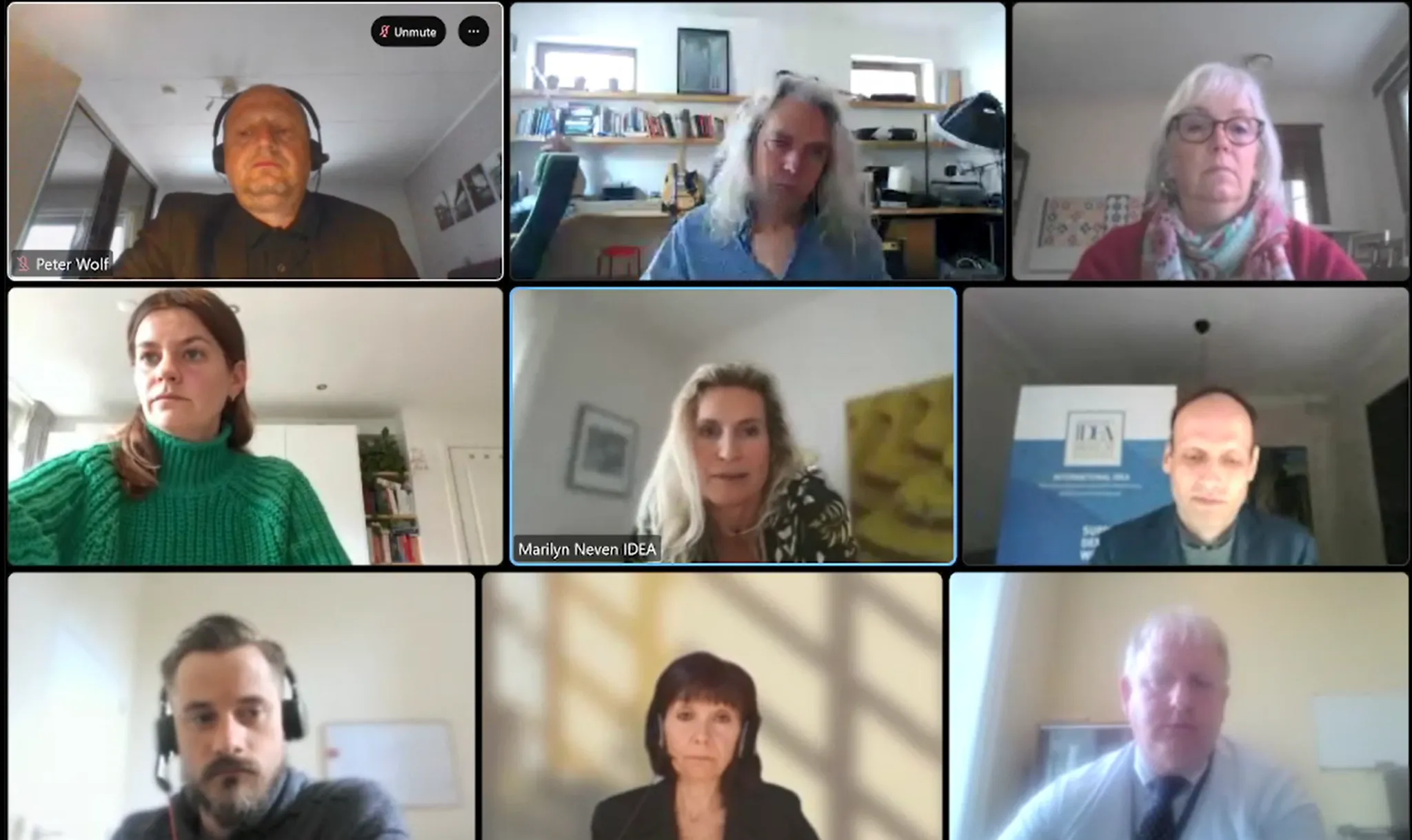Winning the right way: Virtual roundtable on the oversight and implementation of frameworks on online political advertising in election campaigns

As the online space is increasingly the go-to spot for political campaigning, political parties and candidates have new methods to connect with citizens and communicate their policy priorities. However, the rules for political advertising established offline have been found to be insufficient in the online sphere. Online advertising tools are also used for manipulation campaigns that threaten the integrity of our elections. With the rapidly expanding scale of online political advertising, authorities in the EU and beyond have started taking action or are considering options to ensure fair and transparent campaigns.
On 24 April 2023, International IDEA organised a virtual roundtable discussion on ‘The oversight and implementation of frameworks on online political advertising in election campaigns’. The event brought together various actors dealing with the oversight and implementation of rules on online political advertising (OPA), including soft-law solutions such as codes of conduct. The objective of the roundtable was to help countries in addressing OPA by sharing knowledge, best practices and experiences.
The 50 participants came from a diverse group of elections management bodies, government ministries, anti-corruption bodies, civil society organisations (CSOs) and academia, discussing regulatory and oversight frameworks for online political advertising in the EU and beyond. The discussion zoomed in on the campaign regulation and oversight structures intend to maintain a level playing field by establishing transparency standards, financial requirements and other rules for OPA. Experiences were presented by the Belgian CSO AdLens and country representatives from Canada, Ireland and the Netherlands; followed by a Q&A and discussion session.
International IDEA also presented and garnered feedback on the initial findings from its upcoming report, ‘Winning the right way: Online political advertising rules in Europe and selected countries globally’. This publication will present emerging regulatory scenarios for OPA in elections, discuss similarities and differences between legal frameworks, and consider the benefits and drawbacks of soft law solutions on OPA. If you would like to be notified upon the paper’s publication, we invite you to send an email to Thomas Heinmaa, t.heinmaa@idea.int.
Mr Jan Steurs, Founder of AdLens, presented the collective’s experience in fact checking, monitoring and publishing relevant statistics on the online campaign. AdLens is a citizen science project that combines the skills of social media marketeers, data scientists and journalists to monitor OPA across more than 35 countries. Mr Steurs gave participants an idea of how monitoring by CSOs works in practice, explaining how political ads are categorised, and illustrating key findings, including when ad spending is highest and by whom.
Ms Puck Gorrissen, Ministry of the Interior and Kingdom Relations of the Netherlands, discussed the development of a code of conduct in the Netherlands while progress was being made on a new law on political parties. International IDEA mediated development of the code, which was signed by 11 of 13 of the parties in parliament ahead of the 2021 elections and global online platforms Facebook, Google, Snapchat and TikTok. A draft version of the new law on political parties was released in December 2022 for public consultation, and the more than 1200 responses received are currently being considered. The presentation illuminated how codes of conduct can be useful to establish ethical standards, both while new rules are still being considered and in addition to hard legislation.
Mr Paris Beausang, Department of Housing, Local Government and Heritage, introduced the Electoral Reform Act of 2022. The Act comprised comprehensive reforms that established a new independent election management body and formal standards for OPA oversight in Ireland, as well as measures to protect the integrity of elections against foreign influence and mis- and disinformation. His presentation illustrated the many steps that must be taken when building a new election management body from the ground up, and the crucial decisions to be made when instituting hard rules for oversight of OPA. Most notably, the development of the Act goes back to 2017, requiring significant research and stakeholder consultation, both publicly and among other government departments and state agencies, to understand different options and their associated risks.
Ms Anne Lawson, Elections Canada, and Ms Louise Panneton, Office of the Commissioner of Canada Elections, presented experiences in implementing the Elections Modernization Act of 2018 in Canadian elections in 2019 and 2021. The Act established new expectations on parties and platforms for the transparency of OPA, both in terms of the source of communications themselves and the money used to fund them. The presentation demonstrated the importance of existing rules and traditions in informing what kind of additional, online-specific election rules are possible. Canada has a strong judicial tradition of placing careful, narrowly-targeted limitations on free speech to balance it against other values, including the transparency and integrity of elections. Rulemaking on OPA in Canada also built on existing offline rules for advertising “taglines” to increase transparency of online ads and a well-developed reporting and oversight regime for political finances.




